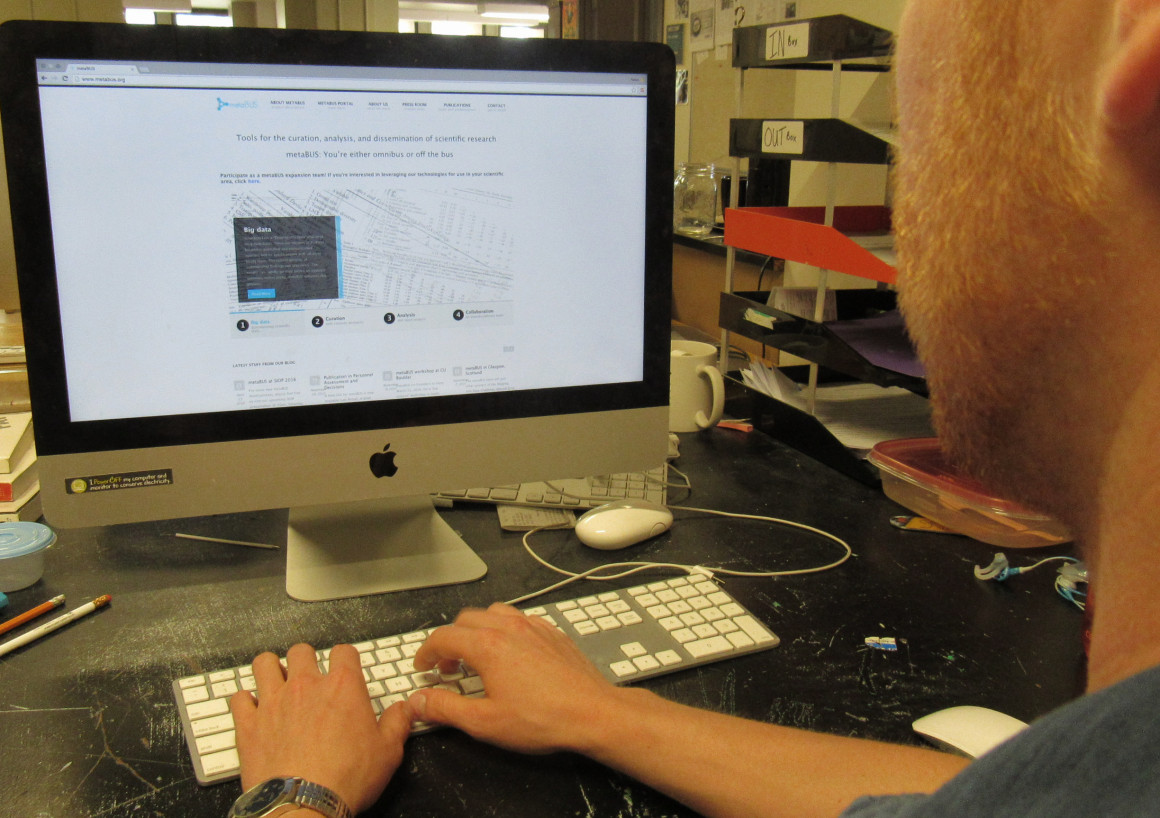
University of Calgary researchers co-found meta-analysis search engine
By Scott Strasser, June 9 2016 —
A new meta-analysis search engine co-created by University of Calgary researchers went public on June 8.
MetaBUS is a collaborative effort between researchers at the U of C, Northern Alberta Institute of Technology and Virginia Commonwealth University. The program was unveiled at the U of C on June 2 and seeks to simplify meta-analysis and make scientific findings more accessible.
Meta-analysis is the process of summarizing findings in a particular academic field. Traditional approaches involve scouring academic journal publications to find related results. Once collected, a computer algorithm is needed to organize data and direct future research.
MetaBUS is designed to speed up that painstaking process.
“By using metaBUS, summarizing research will now only take minutes rather than years. [It] puts the focus on curating new knowledge, rather than trying to sift through past findings,” said co-founder and Haskayne School of Business professor Piers Steel.
The 25-member metaBUS team spent four years developing and testing the product. The team coded nearly one million applied psychology findings in journals dating back to 1980.
Steel said metaBUS is a response to the inaccessibility of scientific research.
“People have been asking, ‘why has there been an internet revolution in communication for everywhere but academia?’” he said. “We have all these problems of accessibility.”
According to the metaBUS website, academic journals are often behind a paywall and are difficult to access for people not affiliated with a university.
Steel said the complex language used in scientific journals is often another problem.
“MetaBUS is a way to solve these issues,” Steel said. “We can take any topic that science has focused itself on, get it out from behind the paywall, take it away from this scientific language and reexpress it in terms and ways you could find useful.”
VCU professor and metaBUS co-founder Frank Bosco said the search engine’s goal is to make science faster.
“MetaBUS expands the scope of academic research to an unprecedented size and scale,” Bosco said. “We believe [it] will enable scientists to answer large-scale calibrating questions that were previously impossible to address.”
Free beta accounts for the search engine were made available on June 8 for users who register on the metaBUS site.
While his team has focused on applied psychology thus far, Steel said the goal is to expand into other fields.
“It’s now about taking science from behind the paywall and making it relevant to everyone in their everyday decisions,” Steel said. “As long as science has been focused on it, we can express it.”
MetaBUS won the 2013 Digging into Data Challenge. The project is funded by the National Science Foundation, the Social Sciences and Humanities Research Council of Canada and the Canadian Centre for Advanced Leadership in Business.
For more information and access to a metaBUS beta account, visit www.metabus.org
